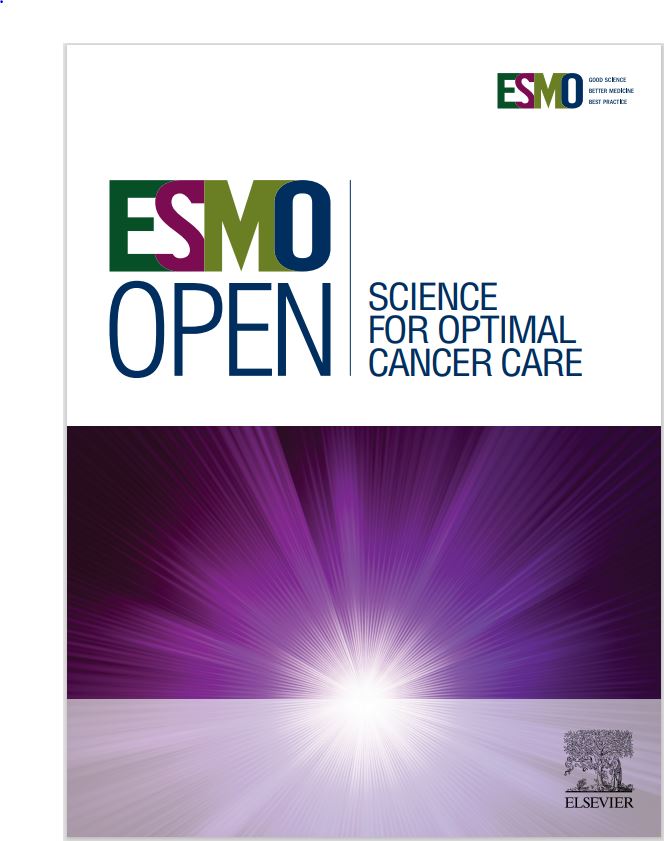The role of physical activity, sedentary behaviour, diet, adiposity and body composition on health-related quality of life and cancer-related fatigue after diagnosis of colorectal cancer: a Global Cancer Update Programme (CUP Global) systematic literature review and meta-analysis
IF 7.1
2区 医学
Q1 ONCOLOGY
引用次数: 0
Abstract
Background
The impact of physical activity, sedentary behaviour, diet, adiposity, and body composition on health-related quality of life (HRQoL) and cancer-related fatigue among colorectal cancer survivors remains uncertain.
Methods
PubMed, Embase, and CENTRAL were systematically searched until April 2023 for relevant randomised controlled trials (RCTs) and cohort studies. Random-effects meta-analyses or descriptive syntheses were conducted depending on the number of studies. The evidence was interpreted and graded by an independent World Cancer Research Fund Expert Committee and Expert Panel.
Results
We included 31 RCTs (18 exercise, 14 diet) and 30 cohort studies (8 physical activity, 3 sedentary behaviour, 13 diet, 9 adiposity and body composition). Meta-analyses were possible for exercise RCTs that showed non-significant effects but indicative of improved HRQoL (overall four trials for global HRQoL, physical and emotional well-being) and fatigue (five trials). These studies were rated at a high risk of bias (RoB), and evidence was graded as ‘very low certainty of an effect’. Descriptive synthesis of interventions to improve diet quality suggested small improvements in global HRQoL and physical well-being, but with a high RoB rating leading to a ‘low certainty’ grading. Evidence from RCTs on probiotics and supplements and evidence from observational studies on sedentary behaviour, and various dietary and body composition factors was generally inconsistent and too scarce to draw conclusions.
Conclusions
Exercise and diet quality interventions might improve HRQoL and fatigue outcomes in colorectal cancer survivors. The evidence overall was limited and should be strengthened by larger, well-designed RCTs across the cancer continuum.
身体活动、久坐行为、饮食、肥胖和身体成分对结直肠癌诊断后健康相关生活质量和癌症相关疲劳的作用:全球癌症更新计划(CUP Global)系统文献综述和荟萃分析
背景体力活动、久坐行为、饮食、脂肪含量和身体成分对结直肠癌幸存者健康相关生活质量(HRQoL)和癌症相关疲劳的影响仍不确定。方法系统检索了PubMed、Embase和CENTRAL中截至2023年4月的相关随机对照试验(RCT)和队列研究。根据研究的数量进行随机效应荟萃分析或描述性综合分析。结果我们纳入了 31 项随机对照试验(18 项运动、14 项饮食)和 30 项队列研究(8 项体力活动、3 项久坐行为、13 项饮食、9 项脂肪和身体成分)。对于显示效果不显著但表明改善了 HRQoL(总体 HRQoL、身体和情绪健康的四项试验)和疲劳(五项试验)的运动 RCT,可以进行 Meta 分析。这些研究的偏倚风险(RoB)很高,证据被评为 "效果的确定性很低"。对改善饮食质量的干预措施进行的描述性综述表明,总体 HRQoL 和身体健康有了小幅改善,但 RoB 评级较高,因此证据被评为 "确定性较低"。关于益生菌和补充剂的 RCT 研究证据以及关于久坐行为、各种饮食和身体成分因素的观察性研究证据通常不一致,而且数量太少,无法得出结论。总体而言,证据是有限的,应通过在整个癌症治疗过程中开展更大规模、设计良好的 RCT 来加强证据的说服力。
本文章由计算机程序翻译,如有差异,请以英文原文为准。
求助全文
约1分钟内获得全文
求助全文
来源期刊

ESMO Open
Medicine-Oncology
CiteScore
11.70
自引率
2.70%
发文量
255
审稿时长
10 weeks
期刊介绍:
ESMO Open is the online-only, open access journal of the European Society for Medical Oncology (ESMO). It is a peer-reviewed publication dedicated to sharing high-quality medical research and educational materials from various fields of oncology. The journal specifically focuses on showcasing innovative clinical and translational cancer research.
ESMO Open aims to publish a wide range of research articles covering all aspects of oncology, including experimental studies, translational research, diagnostic advancements, and therapeutic approaches. The content of the journal includes original research articles, insightful reviews, thought-provoking editorials, and correspondence. Moreover, the journal warmly welcomes the submission of phase I trials and meta-analyses. It also showcases reviews from significant ESMO conferences and meetings, as well as publishes important position statements on behalf of ESMO.
Overall, ESMO Open offers a platform for scientists, clinicians, and researchers in the field of oncology to share their valuable insights and contribute to advancing the understanding and treatment of cancer. The journal serves as a source of up-to-date information and fosters collaboration within the oncology community.
 求助内容:
求助内容: 应助结果提醒方式:
应助结果提醒方式:


